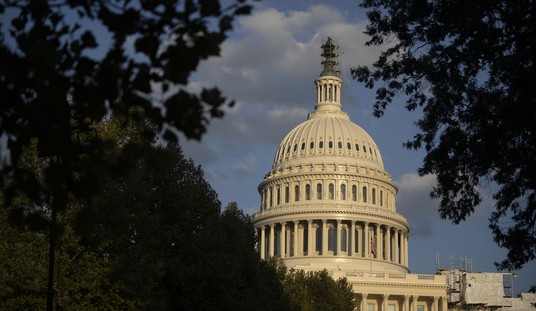For inspiration on how to craft legislation that directly impacts free speech rights, one should definitely not look to the United Kingdom - but that's exactly what California lawmakers did when crafting a 2022 law aimed at protecting children from harmful online content by dictating how tech companies handle minors’ data and the features available to them. Now the 9th Circuit Court of Appeals has upheld a preliminary injunction against that law, ruling that the industry group challenging it is likely to succeed that at least one portion of the law "facially violates the First Amendment."
The California Age-Appropriate Design Code Act (CAADCA) was touted as legislation that would "protect children from seeing posts about self-harm or from predatory digital advertisers," but in reality it would "deputize nearly all websites to censor speech California politicians consider 'harmful'; and require them to collect more data on users of all ages," according to an industry group. Talk about a huge potential for (allegedly) unintended consequences.
Of course, since the bill increases government control and limits freedom, Gov. Gavin Newsom is all for it.
Social media & the internet are integral - but these spaces have to be safe for our children.
— California Governor (@CAgovernor) September 15, 2022
This bill by @AsmBuffyWicks & @Cunning_Jordan stops companies from manipulating kids' data or violating their privacy while ensuring our tech sector can continue to thrive. pic.twitter.com/QazdQT6XbY
Democrat Assemblywoman Buffy Wicks worked with Baroness Beeban Kidron, a member of the House of Lords who wrote the British version of the AADC, in crafting the legislation and getting it passed. Wicks told Politico, "This was not a homegrown bill. We borrowed this from another country." Kidron is also working on the federal level to get similar legislation passed - the Children and Teens’ Online Privacy Protection Act (COPPA 2.0) and the Kids Online Safety Act (KOSA).
But as we've seen lately in Britain, when the government is allowed to define "harmful" online speech and attach consequences to violators, freedom of speech goes away in a quick hurry. And Americans are keenly aware that that's not a new feature of the British system of government, so why would we allow a British Baroness to write a law that would so obviously violate our constitutional rights?
RELATED: British Police Commissioner Threatens to Jail People Over Social Media Posts
As referenced above, there are some constitutional problems with the CAADCA, which is being challenged in court by industry group NetChoice. In her order granting the injunction, US District Court Judge Beth Labson Freeman said the law is “not only unlikely to materially alleviate the harm of insufficient data and privacy protections for children, but actually likely to exacerbate the problem by inducing covered businesses to require consumers, including children, to divulge additional personal information.”
After California Attorney General Rob Bonta appealed the decision granting the preliminary injunction, a panel from the 9th Circuit Court of Appeals upheld it in a ruling issued on August 16. In a press release announcing the decision, NetChoice noted that the law would impact all ages, not just children:
The court noted that the AADC’s Data Protection Impact Assessment (DPIA) requirement likely violates the First Amendment by compelling speech and commandeering private companies to act as roving censors. This would have forced online services to restrict access to protected speech and information for all ages.
Chris Marchese, Director of NetChoice's Litigation Center, said:
“The Ninth Circuit’s ruling is a victory for free expression, online security and Californian families. The court recognized that California’s government cannot commandeer private businesses to censor lawful content online or to restrict access to it.”
How did Baroness Kidron get in touch with Buffy Wicks in the first place? According to Politico, Kidron had her sights set on getting legislation similar to what she'd passed in the UK passed in California, and she reached out to Wicks, who previously worked at Common Sense Media, a liberal group that provides age-based ratings of media content. Interestingly, though, it doesn't look like Baroness Kidron or her group, 5Rights, has registered under the Foreign Agents Registration Act (FARA), even though Kidron says she's been talking with members of Congress about these issues for eight years:
FARA requires agents of foreign principals—like Kidron, or 5Rights, which “is headquartered in London with an office in Brussels”—to register or face criminal sanctions.
Yet according to FARA database searches conducted on August 7, 2023, no FARA filings have been made by or in respect of 5Rights, or Kidron, or figures identified as working on their behalf on legislative initiatives.
British sources say it is possible Kidron and her group were just thoroughly unaware of U.S. law requiring registration since nothing comparable exists within the United Kingdom. However, it is somewhat embarrassing to have a baroness merrily proceeding with lobbying and advocacy while very possibly committing a federal crime. It is also noteworthy that the FARA unit of the Department of Justice has become much more active in recent years, famously targeting figures associated with everyone from President Joe Biden to former President Donald Trump to Florida Gov. Ron DeSantis.
RedState searched the FARA database on August 31, 2024 to see if Kidron has rectified the issue, and no FARA filings were found for either Kidron or 5Rights. Given that the federal Kids Online Safety Act is still being pushed, perhaps this issue should be investigated further.















Join the conversation as a VIP Member